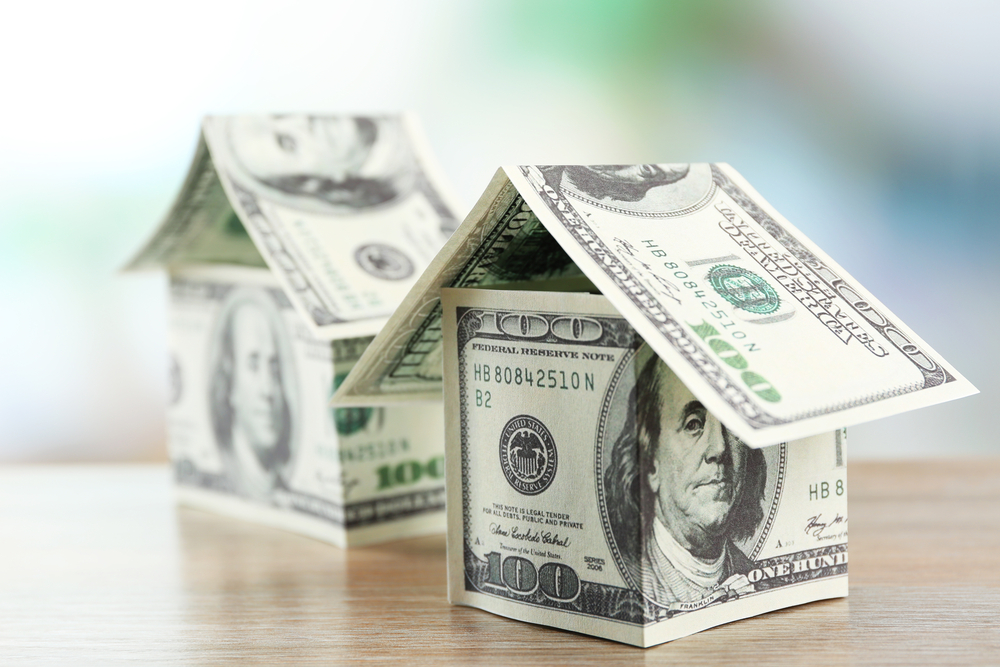You’re about to sign a mortgage, but are you prepared for the hidden costs that can add thousands to your overall expense? Closing costs, for instance, can range from 2% to 5% of the purchase price, while property taxes can increase significantly over time. Insurance premiums can escalate, and appraisal and inspection fees can add up quickly. Then, there are title insurance and escrow fees to factor in. The truth is, these costs can sneak up on you if you’re not prepared. Just knowing what to expect is only the beginning – there’s more to explore to ensure you’re making an informed decision.
Key Takeaways
Closing costs can range from 2% to 5% of the purchase price, and it’s crucial to plan ahead and negotiate with the lender.
Property taxes are not a fixed expense and can increase significantly over time, depending on the assessed value of the property.
Insurance premiums can escalate over time, impacting credit score and future loans, so it’s essential to carefully review policy inclusions and shop around.
Appraisal and inspection fees, ranging from $300 to $1,500, are essential for determining property value and condition, and should be factored into the budget.
Title insurance and escrow fees, including a one-time fee and ongoing escrow payments, protect from ownership disputes and should be included in the budget.
Closing Costs: The Hidden Fees
When you’re about to finalize your mortgage, you’ll likely be hit with a barrage of unexpected fees, collectively known as closing costs, which can add up to thousands of dollars. These costs can be a significant burden, and it’s essential to understand what you’re paying for.
You might be wondering, what exactly are these fees? They can include everything from appraisal fees to title insurance, loan origination fees, and more. The list goes on, and it’s crucial to factor these costs into your overall mortgage budget.
It’s not uncommon for closing costs to range from 2% to 5% of the purchase price. That means on a $300,000 home, you could be looking at an additional $6,000 to $15,000. Ouch! It’s crucial to plan ahead and negotiate with your lender to minimize these costs.
Don’t be caught off guard – make sure you review your loan estimate carefully and ask questions if you’re unsure about any of the fees. Remember, every dollar counts, and being prepared can save you thousands in the long run.
Property Taxes: A Long-Term Burden
As a homeowner, you’ll be shouldering the weight of property taxes, a long-term financial burden that can increase significantly over time, potentially adding thousands of dollars to your annual mortgage costs.
It’s essential to understand that property taxes aren’t a fixed expense, and you’ll need to factor in potential increases when budgeting for your mortgage payments.
You’ll be responsible for paying property taxes to the local government, which will use the revenue to fund public services and infrastructure projects. The amount you pay will depend on the assessed value of your property, which can fluctuate over time.
If you’re not prepared, increasing property taxes can put a significant strain on your finances. To avoid financial shock, it’s crucial to research the property tax landscape in your area and factor in potential increases when calculating your mortgage affordability.
Insurance Premiums: More Than Meets
You’ll need to factor in another crucial cost of homeownership: insurance premiums, which can escalate over time, putting additional pressure on your mortgage payments and threatening to upend your carefully crafted budget.
It’s not just about covering your property; insurance premiums can also impact your credit score and ability to secure future loans. You may think you’re getting a good deal on your insurance, but hidden fees and rate hikes can add up quickly.
For instance, did you know that insurance companies often raise premiums based on claims filed in your area, even if you haven’t made a claim yourself? Or that certain types of roofs or plumbing systems can increase your rates?
It’s essential to carefully review your policy and ask questions about what’s included – and what’s not. Don’t assume you’re getting the best rate; shop around and negotiate to ensure you’re not overpaying.
Your wallet – and your peace of mind – will thank you.
Appraisal and Inspection Fees
Beyond insurance premiums, you’re likely to encounter another set of costs that can add up quickly: appraisal and inspection fees, which can total thousands of dollars and must be factored into your overall mortgage expenses. These fees are essential to ensuring the property’s value and condition, but they can be a significant burden on your wallet.
As a homebuyer, you’ll typically need to pay for an appraisal, which can cost anywhere from $300 to $1,500, depending on the location and type of property. This fee covers the cost of hiring an appraiser to determine the property’s value, which is crucial for securing a mortgage.
Inspection fees are another story. These can range from $300 to $1,000 or more, depending on the scope of the inspection and the location. While they’re not always mandatory, inspections can reveal hidden defects or issues with the property, giving you leverage to renegotiate the price or back out of the deal if needed.
Don’t underestimate the impact of appraisal and inspection fees on your mortgage expenses. Factor them into your budget to avoid any surprise costs down the line. Remember, it’s always better to be prepared and know what to expect.
Title Insurance and Escrow Fees
Closing costs don’t stop at appraisal and inspection fees; now, you’ll need to factor in title insurance and escrow fees, which can add hundreds or even thousands of dollars to your mortgage expenses.
You might be wondering, what’s the purpose of title insurance? Simply put, it protects you and the lender from any potential ownership disputes or title issues. It’s usually a one-time fee, ranging from $1,500 to $3,000, depending on the location and property type.
Additionally, you’ll need to set up an escrow account, which holds funds for property taxes and insurance premiums. You’ll typically pay 2-3 months’ worth of expenses upfront, and then a portion of your monthly mortgage payment will go towards replenishing the escrow account.
While these fees might seem like an added burden, they’re essential for securing your dream home. Be sure to factor them into your budget to avoid any surprises down the line.
Mortgage Broker and Loan Fees
As you navigate the mortgage process, you’re likely to encounter additional fees associated with your loan, including charges from mortgage brokers and lenders that can add up quickly. These fees can be a surprise if you’re not prepared, so it’s essential to factor them into your overall costs.
Mortgage brokers, for instance, often charge fees for their services, which can range from 0.5% to 2% of the loan amount. Lenders may also charge origination fees, which can be up to 1% of the loan amount. Additionally, you may encounter underwriting fees, processing fees, and other miscellaneous charges. These fees can vary widely depending on the lender and the type of loan you’re applying for.
It’s crucial to ask about these fees upfront and factor them into your overall costs to avoid any surprises down the line. Remember, these fees can add up quickly, so it’s essential to stay on top of them to ensure you’re getting the best deal possible.
Ongoing Maintenance and Repair Costs
Owning a home means you’ll be responsible for ongoing maintenance and repair costs, which can quickly drain your finances if you’re not prepared. As a homeowner, you’ll need to budget for regular expenses like plumbing, electrical work, and HVAC maintenance. These costs can add up fast, especially if you’re not proactive about maintenance.
For example, a single leaky faucet can waste gallons of water and hike up your water bill. And if you’re not handy, you’ll need to factor in the cost of hiring professionals to fix things.
It’s essential to prioritize maintenance to avoid costly repairs down the line. Set aside a portion of your budget each month for unexpected expenses, and consider setting up a home warranty to cover unexpected repairs. Remember, staying on top of maintenance can save you thousands in the long run.
Don’t get caught off guard – factor these costs into your budget and plan ahead to avoid financial stress. By being proactive, you’ll be able to enjoy your home without worrying about the financial burden of unexpected repairs.
Frequently Asked Questions
Can I Negotiate My Mortgage Interest Rate With the Lender?
You can definitely negotiate your mortgage interest rate with the lender – it never hurts to ask! Be prepared to walk away if the rate isn’t right, and be willing to shop around for a better deal.
What Happens if I Miss a Mortgage Payment?
“If you miss a mortgage payment, you’ll face late fees, penalties, and a hit to your credit score. You must act fast, contacting your lender to discuss options like temporary payment suspension or loan modification to avoid foreclosure.”
Is It Better to Put 10% or 20% Down on a Mortgage?
When deciding between 10% or 20% down, you’ll want to weigh the pros and cons. Putting 20% down saves you from PMI, but tying up more cash; 10% down gets you in the door faster, but you’ll pay more in the long run.
Can I Use a Cosigner to Qualify for a Mortgage?
You can use a cosigner to qualify for a mortgage, but you’ll need to consider their credit score, income, and debt-to-income ratio, and be aware that they’ll be equally responsible for the loan.
How Long Does It Take to Recover From a Foreclosure?
You’ll likely need 7-10 years to recover from a foreclosure, hurting your credit score and making it harder to get approved for a mortgage or loan with a decent interest rate.
Conclusion
As you finalize your mortgage, don’t get caught off guard by hidden costs. You’ve likely budgeted for your monthly payments, but what about closing costs, property taxes, insurance premiums, appraisal fees, title insurance, and loan fees? These expenses add up quickly.
And let’s not forget ongoing maintenance and repairs. Before signing, take a closer look at the fine print to avoid financial surprises down the road. Your financial future depends on it.



